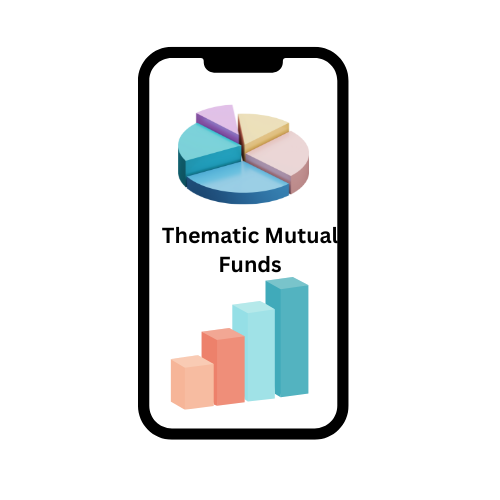Mutual Fund Investment in India has achieved lot of popularity for building wealth and achieving financial goals. But evaluating the Investments is equally important as it helps one to understand risk tolerance. This is where understanding mutual fund performance metrics becomes crucial.
Let us understand what are the key metrics which should be considered while evaluating mutual fund performance and tips for selecting the right mutual fund.
- Risk and Return Relation
- When mutual funds are evaluated, investors need to consider not only returns generated by the fund but also the risk involved to achieve that returns. A high return may not be necessarily indicate better performance if it was achieved by taking on too much risk.
- Risk adjusted returns are calculated by comparing the returns generated by a mutual fund to the risk taken by the fund. The level of risk taken by a fund is typically measured its volatility. It is the degree to which the funds return fluctuate over time. Risk adjusted returns allow investors to assess whether the returns generated by a mutual fund are commensurate with the level of risk taken.
- For measuring risk-adjusted returns Sharpe Ratio is one of the popular measures adopted. Sharpe Ratio is calculated by subtracting risk free return from the funds return and then dividing that number by the fund’s volatility. The resulting number represents the excess return generated by the fund per unit of risk taken. A higher Sharpe Ratio indicates better risk-adjusted performance.
- Investors should also consider evaluating their own risk tolerance while evaluating mutual fund performance. A fund with high risk-adjusted returns may not be suitable for all investors especially for those who are risk-averse. On the other hand, a fund with low risk adjusted returns may be appropriate for investors with a low risk tolerance or long term investment horizon.
- Expense Ratio
- An expense ratio is the annual cost of managing and operating an investment fund, like a mutual fund or exchange Traded Fund. It is expressed as percentage and represents the fees and expenses investors pay. A lower expense ratio is better as it involves less cost for investors. It is the per unit cost for running and managing the mutual fund. This expense is not paid separately and it is calculated as percentage of the daily investment value. The expense ratio in a mutual fund is indicated as a percentage of the total AUM (Asset under management), representing the fund’s operating expenses.
- These expenses are deducted from the AUM to declare the fund’s NAV (Net asset value) daily, thereby reducing the overall return from the mutual fund. A higher expense ratio can erode your overall return from the mutual fund but cannot be a prime indicator of its performance. Other factors, such as XIRR, past performance, fund managers, etc., should also be considered before selecting the fund.
- As mutual funds are regulated by the SEBI (Securities and Exchange Board of India), they have prescribed the maximum percentage of expense ratio that can be charged from the investors. These rates vary based on the type of funds (Equity or non-equity, Fund of funds (FoFs), ETFs, etc.) and the AUM of the fund.
- Alpha
- Alpha is a metric that helps you understand the performance of your mutual fund. It is a metric that pits a mutual fund’s performance against an index. If the returns earned by the mutual fund are more than those earned by the index in a set timeframe, you may consider investing in that mutual fund. The baseline for Alpha is 0. It means that if the value of Alpha for a mutual fund is 0, it earns the same returns as the benchmark index. An Alpha over 0 indicates that the mutual fund earns more than the index, while an Alpha less than 0 suggests that the fund underperforms an index. Investing in a fund having an Alpha of more than 0 could be favorable as the fund has a history of outperforming the benchmark index.
- Beta
- Risk is a critical metric in mutual fund investments. Beta measures this feature and helps you assert whether the fund meets your risk profile. Beta calculates the volatility of a mutual fund by comparing it against a benchmark index. It tracks the performance of a mutual fund in varying market conditions and designates a value to it.
- The baseline for Beta in mutual funds is 1. A fund with a Beta over 1 is more volatile than the benchmark index. If it is equal to 1, the fund is as volatile as an index. A Beta less than 1 signifies that the mutual fund is less volatile than the benchmark index. Funds with a Beta over 1 carry more risk but may offer high returns. You can invest in them if it meets your risk profile.
- Consistency in Performance
- When evaluating mutual fund performance, it is essential to consider consistency in performance over a more extended period. A fund that has consistently generated good returns over five or ten years is generally preferable to one that has had one or two exceptional years. Consistency in performance indicates that the fund has a solid investment strategy and can withstand market volatility.
- How to Compare Mutual Funds
- Selecting the right mutual funds is the first step towards earning returns on the expected lines. To arrive at the best mutual funds, you need to compare various funds available. You can start with your investment objective. When you know your goals, you can easily decide what to look for in a fund.
Sector allocation
- A mutual fund scheme allocates your invested capital according to its investment objective. As regards asset allocation, SEBI has given a mandate which every fund in a particular category follows. If you consider a multi-cap equity fund, it will have at least 65% of capital allocated to equity shares of different companies. Such an allocation impacts the risk profile of the fund.
- But two funds of the same category need not have identical sector allocation. Fund A might have invested more in financial services, whereas Fund B might have invested more in FMCG companies while staying within SEBI mandate. So, this makes Fund A less risky than Fund B. Similarly, some fund might be taking concentrated bets to earn higher returns. While comparing two funds, you should compare the sector allocations also. Match the fund risk profile with your risk appetite and choose accordingly.
- Role of Mutual Fund Advisor
- A fund advisor is a qualified professional who analyses your current finances, understands your investment goals and guides you to invest in the best mutual fund to build a portfolio suited to your requirements and financial goals. They have an excellent understanding of various types of mutual funds and are abreast with the current market conditions to help you select the right fund for investing. It is the fiduciary duty of an advisor to ethically and morally disclose all aspects of an investment to their clients.
- Choosing the right mutual funds based on one’s financial goals and risk tolerance can be a complex and time-consuming process. Working with a SEBI-registered financial advisor can be a valuable investment in achieving one’s financial objectives. A financial advisor can provide personalized investment advice and recommend mutual funds that align with the investor’s goals, risk tolerance, and investment horizon. Moreover, financial advisors can help investors navigate market volatility and make informed investment decisions, considering factors such as taxation, liquidity, and diversification.
- It is important to note that investors should work with a SEBI registered investment advisor to ensure high quality and unbiased advice. A registered investment advisor can help investors identify the right mutual funds based on their financial goals and risk tolerance. Additionally, investors can benefit from the expertise of a registered investment advisor in selecting mutual funds that have a consistent track record of outperformance.
Tips for Evaluating Mutual Fund Performance
- Link your investment with your goal:By linking your goals with your investment, you can track the progress of your investments. Estimate the money needed for your goal, and see whether your investments are helping you progress towards your goal. If not, then it’s time you rethink your investment in that fund.
- Compare with the benchmark performance: You can also check whether your fund is performing well or not by comparing it with its benchmark. A fund’s benchmark is usually disclosed in the scheme information document. By comparing the fund’s returns and the benchmark, you can check whether your fund is underperforming or beating the benchmark.
- Compare with similar funds:There are several mutual fund houses, each of which has funds for different categories. So, pick up funds of a similar category from other asset management companies (AMC) and compare your fund’s returns with them. If your fund is underperforming, then it’s time you switch your investment from underperforming to a better one.
- Check historical performance:Although a mutual fund’s past performance doesn’t guarantee future returns, it is important to check the fund’s past performance. Check how the fund has performed in different cycles, and look for consistency in returns. Consistency helps understand the expertise and skill of the fund manager.
- Check the expense ratio:The expense ratio of the fund is important while assessing the performance of a fund. Although a high expense ratio means lower returns, a fund with a high expense ratio can sometimes perform extremely well, as the manager might need additional funds for quick decision-making to capitalize on an opportunity.
- Evaluate the risk-adjusted returns: Mutual funds come with a risk that is difficult to eliminate. However, checking whether the returns justify the risk is important. Several ratios, such as alpha, Sharpe, and information ratios, can be used to measure risk-adjusted returns. Evaluating the performance of the mutual fund isn’t rocket science. However, it is a time taking process. Imagine the amount of time you have to spend to compare the performance of the fund with its benchmark or peers and estimate the risk-adjusted returns! It is a time taking process and can get demotivating to do often.






